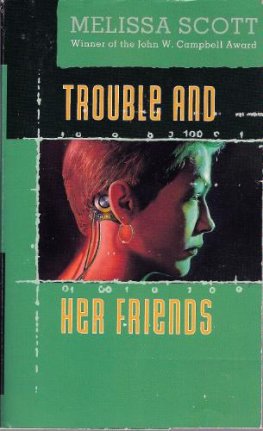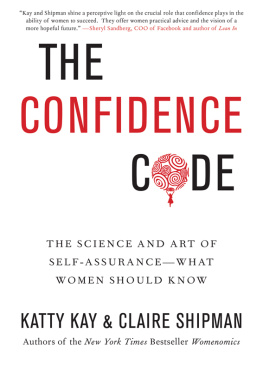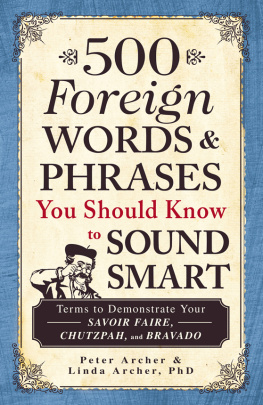

First published in 2017 by Oberon Books Ltd
521 Caledonian Road, London N7 9RH
Tel: +44 (0) 20 7607 3637 / Fax: +44 (0) 20 7607 3629
e-mail:
www.oberonbooks.com
Copyright Scottee, 2017
Foreword copyright Scottee, 2017
Foreword: Bold Love copyright Jen Harvie, 2017
Foreword: Bravado: A Perspective copyright Stewart Who?, 2017
Scottee is hereby identified as author of this work in accordance with section 77 of the Copyright, Designs and Patents Act 1988. The author has asserted their moral rights.
Scottee is hereby identified as author of the Foreword in accordance with section 77 of the Copyright, Designs and Patents Act 1988. The author has asserted their moral rights.
Jen Harvie is hereby identified as author of Foreword: Bold Love in accordance with section 77 of the Copyright, Designs and Patents Act 1988. The author has asserted their moral rights.
Stewart Who? is hereby identified as author of Foreword: Bravado: A Perspective in accordance with section 77 of the Copyright, Designs and Patents Act 1988. The author has asserted their moral rights.
All rights whatsoever in this play are strictly reserved and application for performance etc. should be made before commencement of rehearsal to Curtis Brown Ltd, Haymarket House, 28-29 Haymarket, London SW1Y 4SP. No performance may be given unless a licence has been obtained, and no alterations may be made in the title or the text of the play without the authors prior written consent.
You may not copy, store, distribute, transmit, reproduce or otherwise make available this publication (or any part of it) in any form, or binding or by any means (print, electronic, digital, optical, mechanical, photocopying, recording or otherwise), without the prior written permission of the publisher. Any person who does any unauthorized act in relation to this publication may be liable to criminal prosecution and civil claims for damages.
A catalogue record for this book is available from the British Library.
PB ISBN: 9781786823342
E ISBN: 9781786823359
Cover design by Oberon Books
Printed and bound by 4edge Limited, Essex, UK.
eBook conversion by CPI Group (UK) Ltd, Croydon, CR0 4YY.
Visit www.oberonbooks.com to read more about all our books and to buy them. You will also find features, author interviews and news of any author events, and you can sign up for e-newsletters so that youre always first to hear about our new releases.
This play is dedicated to the men who made me hate them.
Contents
Foreword
by Scottee
Foreword: Bold Love
by Jen Harvie
Foreword: Bravado: A Perspective
by Stewart Who?
Foreword
I dont like working-class men, I dont like being around them, especially when they are drunk. I fear their capabilities, their loose tongues, banter and fast tempers.
I dont like being on a train or bus, or waiting in public when groups of working-class blokes are present, I fear encountering football supporters, stag dos and lads on a night out I worry what they might do to me, what they might say, what might happen I fear potential.
I hate talking to working-class men, being in changing rooms or public toilets with them, going into boozers, greasy Spoons or DIY shops. Any space working-class blokes dominate creates a recognisable response of sweaty palms, my eyes darting around the room pre-empting danger and an umbrella of worry.
However, this fear isnt one-sided, its a mutual fear. They fear me and my effeminacy. They stare, they point, they laugh and nudge each other. Sometimes they take photos of me, sometimes they chant insults or point me out of a crowd.
To complicate matters, I also love working-class men. I love their familiarity. Im married to a working-class man and Im sexually attracted to working-class men. I equally fear and love working-class men I live with a complex version of Stockholm Syndrome or trauma bond because of my historic violent encounters with blokes.
In 2016 I sat in front of my laptop and decided I would attempt to cleanse myself of this unearthed fear, dread, worry. I purged all of my early, formative experiences with working-class masculinity into a document. The result is my first text for stage.
Bravado includes four very graphic accounts of what happens when a child is subjected to working-class maleness in a cultural climate of aggressive and sensitive masculinity. It explores sexual and domestic violence, post-traumatic stress disorder, abuse and revenge. Its this reason why I urge you not to read on if you find these subjects unhelpfully triggering.
After making performance for almost ten years I knew I didnt or perhaps couldnt perform this one. To perform it offers the audience a get-out they know I survive, that I live to tell the tale. I wanted to remove that comfort. My choice in not performing is also a reminder that this wont be, cant be and shouldnt be wrapped up nicely in an hour. This stuff is by no means resolved for me there is no learning, no moral to the tale its still very much alive.
As I wrote the show, I fantasised about what it would do if performed by those I feared men. How would I get men to perform it? Simple, you ask for a volunteer.
Cis men are socialised to be confident and dominant, and so are usually the first to come forward, to take one for the team, to lead, to overpower. Bravado is performed by a volunteer and to date that volunteer has always been a bloke.
Of the other two essays in this volume, Stewart Who?s is a reflection on what happened when he put his hand up to volunteer at the opening of Bravado. Likewise, Jen Harvies explores the concept of bravado itself, and its relation to nineties maleness and homosociality.
What you should know is that this work comes with a massive dead weight of familial guilt the stories recounted are of family who have since changed their stripes, who have fought their addictions and demonstrated to me their capabilities of love, softness and affection. They have turned their lives around. But Bravado doesnt explore that, only because this text explores my world from 1990 to 1999.
Its important I mention that this work also comes with lashings of fear I fear what might happen by putting my experience out there. I fear drawing attention to myself so men can see me plainly. I fear what the men in question might do should they find this text. What happens should they read the fact Ive got brave enough to out them but not brave enough to confront them. This is how maleness and misogyny succeed: they live off our fear and off their potential its time to relinquish it.
This isnt an easy read for you or me.
You have been warned.
Scottee
August 2017
Bold Love
THE 1990S
What are the opportunities for men and boys especially working-class men and boys to express their feelings? Where are the role models? What were the opportunities and emotional contexts in the 1990s, the formative years of Scottees youth? In August 1990, US President George Bush led coalition forces, including from the United Kingdom, into the Gulf War. It was a war of immediate propagandising images, with daily footage of action broadcast live, continuously, and effectively in celebration, militarising the television landscape of Scottees childhood and the video landscape of Bravado , and mixing with other contemporary images of heterosexual male idealism that Bravado invokes, including Baywatch. After the Gulf War, it was finally recognised how many veterans experienced post-traumatic stress disorder, another feature which touched Scottees life through his Dad who was stationed in the Falklands, Northern Ireland and Germany before the Wall came down, and whose own father and grandfather had also been soldiers. From 1990 until 1997, the British Prime Minister was John Major, one of whose defining features was a lack of public expression of emotion. But the decade also started with the 1990 World Cup semi-final of England versus Germany, when Paul Gascoigne famously and, for many, endearingly wept after receiving a yellow card that would rule him out of the final had England made it through. Following Dianas death in August 1997, the new, young Prime Minister Tony Blair stepped up, voice quivering, to speak the nations grief and to claim her as the Peoples Princess. Publicly, it was a decade marked by the compulsory machismo of Bush and the emotional rectitude of Major, but also the irrepressible emotions of PTSD and the emotional possibilities modelled, however briefly, by Gazza and Blair.








